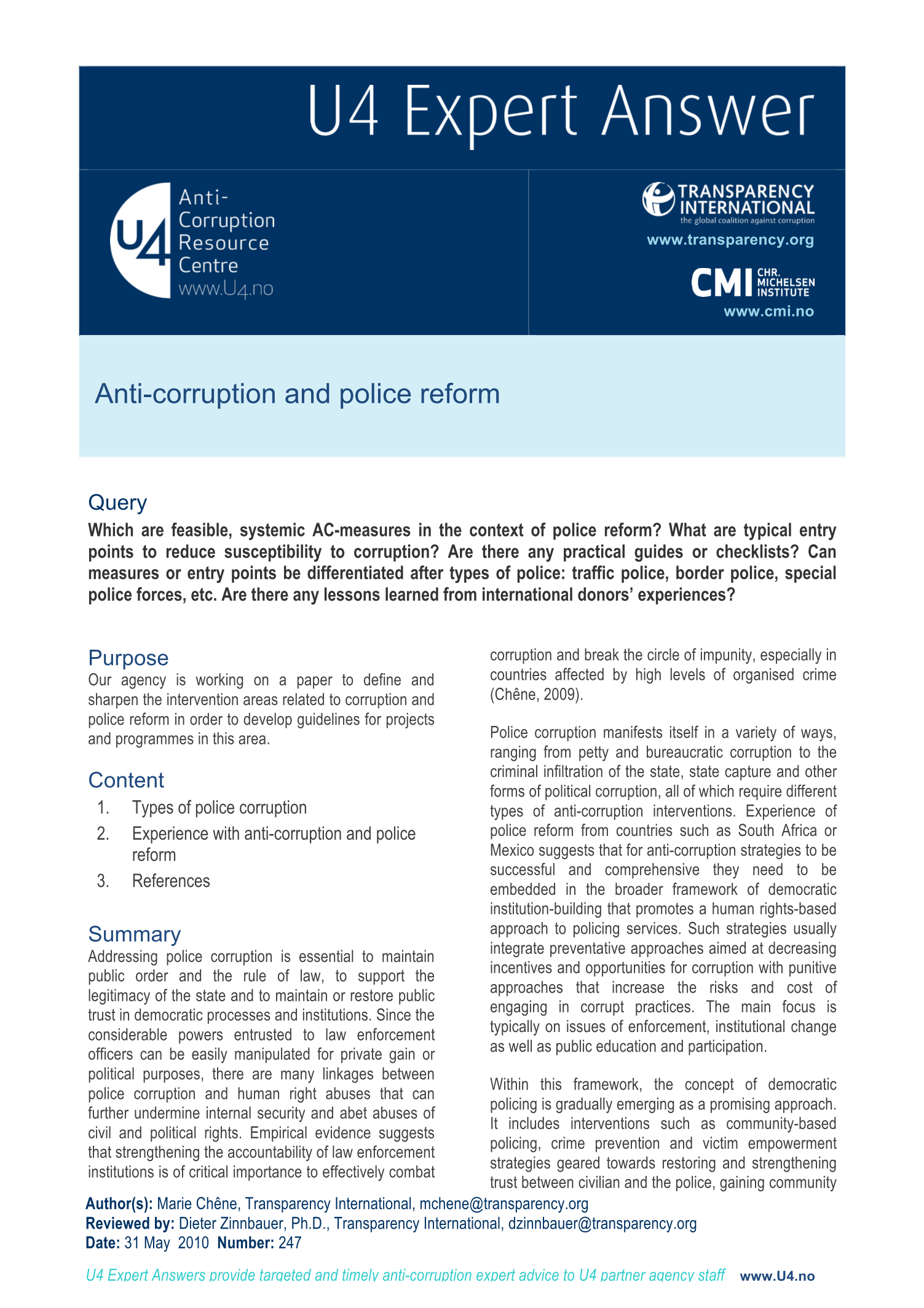U4 Helpdesk Answer
Anti-corruption and police reform
Addressing police corruption is essential to maintain the rule of law, to support the legitimacy of the state and to restore public trust in democratic processes. Since the powers entrusted to law enforcement officers can be easily manipulated, there are many linkages between police corruption and human right abuses that can further undermine internal security. Police corruption manifests itself in a variety of ways, all of which require different types of anti-corruption interventions. Experience suggests that for anti-corruption strategies to be successful and comprehensive they need to be embedded in the broader framework of democratic institution-building. Such strategies usually integrate preventative approaches aimed at decreasing incentives for corruption with punitive approaches that increase the cost of engaging in corrupt practices. The main focus is typically on issues of enforcement, institutional change as well as public education and participation.

Cite this publication
Chêne, M. (2010) Anti-corruption and police reform. Bergen: U4 Anti-Corruption Resource Centre, Chr. Michelsen Institute (U4 Helpdesk Answer null)
Disclaimer
All views in this text are the author(s)’, and may differ from the U4 partner agencies’ policies.
This work is licenced under a Creative Commons Attribution-NonCommercial-NoDerivatives 4.0 International licence (CC BY-NC-ND 4.0)
Keywords
South Africa, police, political corruption, anti-corruption measures, anti-corruption reforms, anti-corruption agencies, anti-corruption strategy, anti-corruption policy, anti-corruption measures, governance, donors, donor coordination, international coordination, international commitment, bureaucracy, law enforcement, rule of law, Venezuela, Singapore, South Africa


